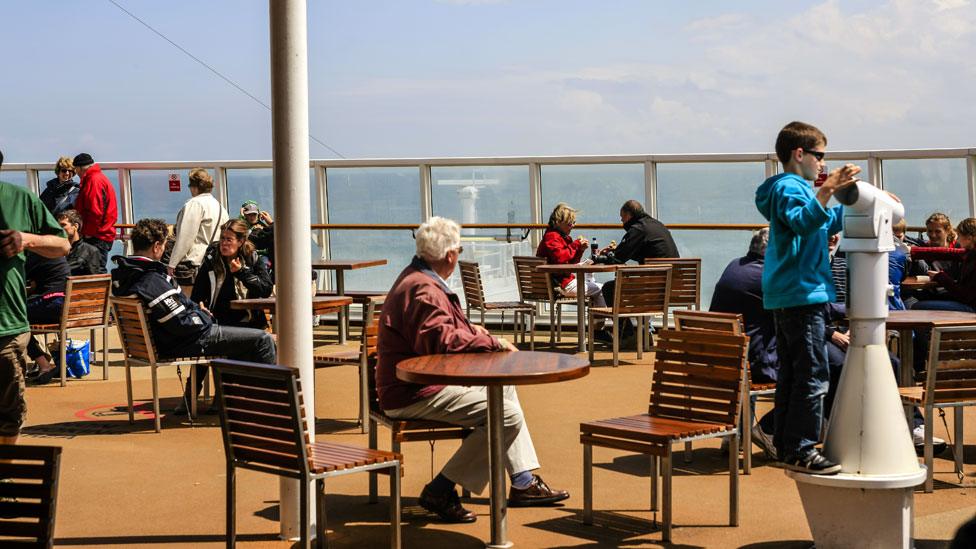Government to fund 2,900 school exchanges for poorer pupils
- Published

Secondary schools in England will be able to apply for money to take poorer pupils overseas on school exchanges
The £2.5 million government scheme will enable pupils aged 11 and over "to experience other cultures and go to places they wouldn't normally visit".
Education Secretary Damian Hinds said: "As Britain leaves the EU, it's more important than ever to show how much we value international opportunities."
It is estimated the scheme could support trips for 2,900 pupils.
The exchange programme will be run in partnership with the British Council, the organisation for cultural relations, external.
The grants will be targeted at schools with above-average numbers of pupil-premium students.
Pupil premium is a form of additional funding given to state schools in England to help "close the gap" between disadvantaged pupils and their peers.
Research by the British Council found that only 39% of state secondary schools run exchange programmes, compared with 77% of independent schools.
"School exchanges are so valuable, bringing subjects such as modern languages and international history to life, as well as helping pupils develop into confident, independent and well-rounded young people," said Mr Hinds.
He stressed the importance of learning other languages and developing "a global outlook" among young people.
"School exchanges are so valuable, bringing subjects such as modern languages and international history to life.
"This investment will help schools who may not have much experience organising trips abroad to ensure their pupils don't miss out on all the fantastic benefits these experiences can bring."
Mr Hinds announced the scheme ahead of the Education World Forum which begins in London on Sunday.
- Published1 May 2018
